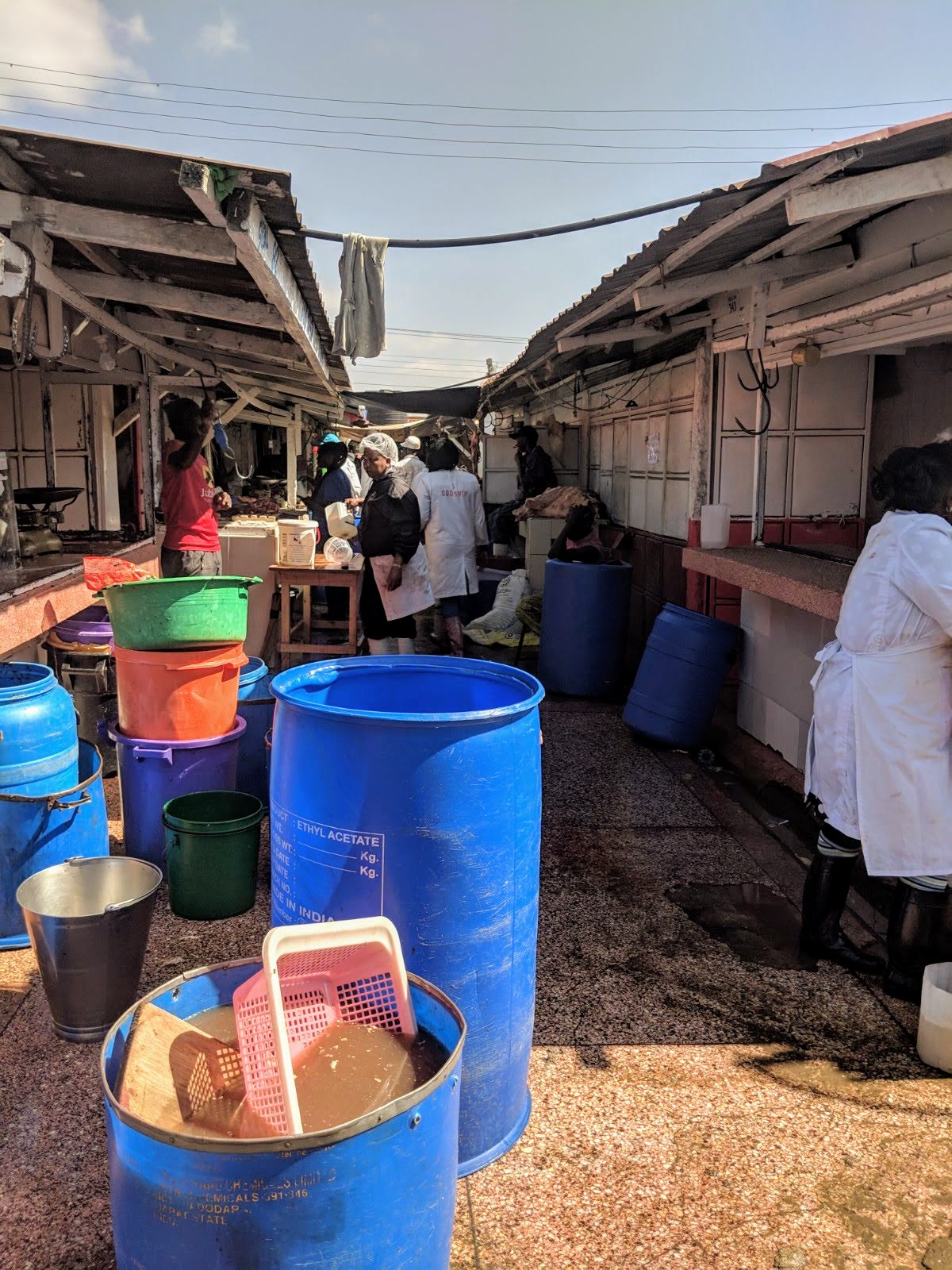It is just after 6:00 a.m., and the gates to Burma market, one of Nairobi’s largest meat markets, are about to open. Throughout the day, over 20,000 people – clients from restaurants, butcheries, and individuals, will descend on the market to buy their meat in bulk. Most of the meat sellers waiting at the gate are men – this is a very male-dominated business – but at the front of the crowd is Ayantu, a single mother of three, and one of the few women operating in this market. Although it is only 6:00 a.m., Ayantu has already had a busy morning, preparing breakfast for her kids, and dropping them off at school. Now, like every other morning, Ayantu will buy two goats and prepare the meat to sell in smaller units.
“When I go to buy the meat, the men in the market are very rough, but when you have problems, what do you fear? I am doing this for my children,” Ayantu told us.
Up until 2012, Ayantu and her family lived a comfortable life in Ethiopia. Her husband was a well-known businessman in trading cattle, and they were financially stable. But, one day, Ayantu’s husband disappeared, and after his disappearance, she began receiving threats. Fearing for the safety of her children, the family fled to Kenya.
When Ayantu first arrived
Having worked in the meat business for more than a year, Ayantu was confident that having her own meat outlet could significantly improve her household income. She was right. After completing RefugePoint’s business skills training and receiving a business grant of $200 from RefugePoint, Ayantu was able to sublet space within an operational meat outlet in Burma market and now earns an average profit of $150 per month, which is about double what she earned selling injera. Another added bonus to owning her own meat outlet is that Ayantu is usually able to sell all of her stock by 2:00 p.m. and she can then leave to pick up her children from school.
RefugePoint’s holistic range of services, which includes counseling, medical assistance, education support, small business training, and food and rent support, are tailored to meet the needs of each individual client. When women, and especially female heads of household, like Ayantu, are supported to become self-reliant, this has positive impacts on the entire family, and ultimately the community. They are able to take their kids to school, meet the basic needs of the family, ensure that they are living in a safe and secure environment, and better plan for the future of their families.
“The thing that I love most about my business is the fact that I run it on my own. Before, I was selling for another person’s business, but now I sell for myself,” Ayantu said as she happily proceeded to close a sale.
